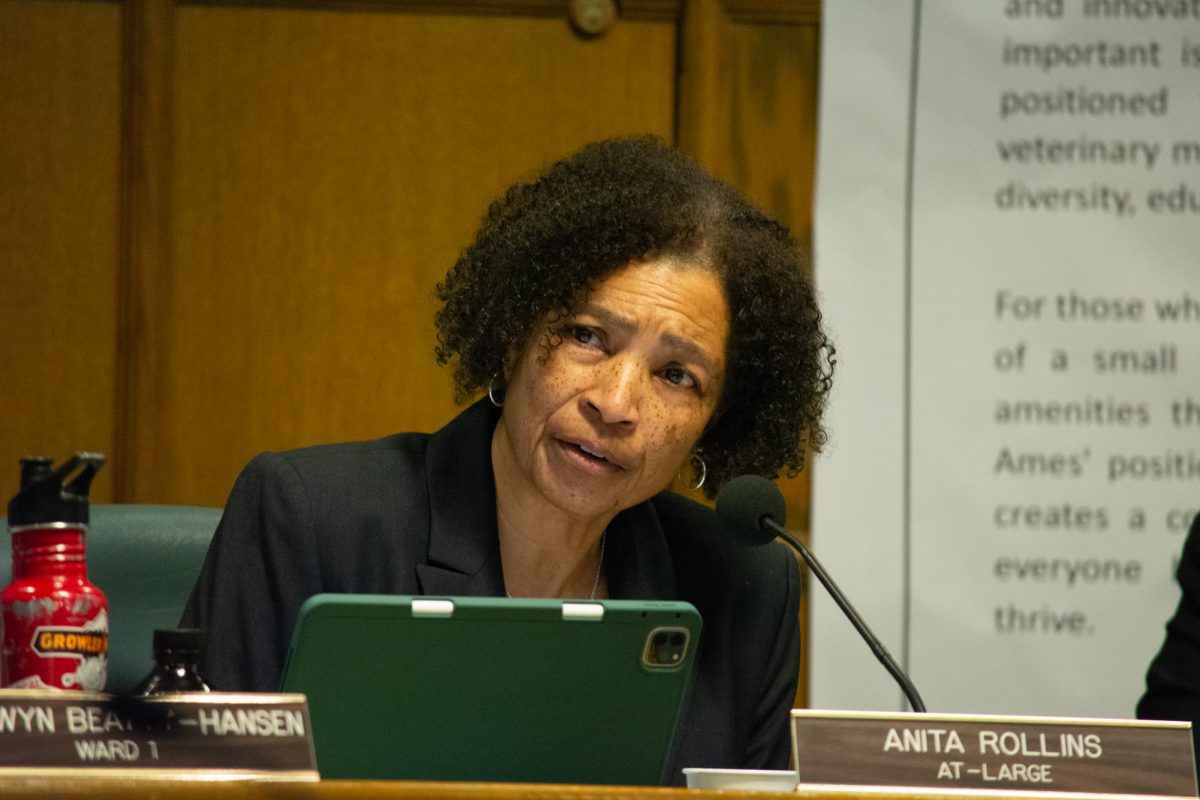Patriarchy 101: What is it and how does it affect you?
December 5, 2021
Women having less power, opportunities, responsibilities or respect in society is not just sexism, it is patriarchy. Seeing men as more dominant than women comes from a pattern of undermining and excluding women for centuries, according to an article by Your Community Health.
The women and gender studies program at Iowa State offers students a chance to study feminist ideas and movements and how they oppose patriarchy. These classes include lessons in sexism, feminist movements and the harmful effects of patriarchy.
“I do teach about patriarchy in Intro to Women’s and Gender Studies. It is pretty foundational,” said Iowa State professor Stephanie Gibb-Clark. “Feminism is largely built around the idea that patriarchy exists and has existed in some form or another.”
Forms of patriarchy vary from minor to extreme. Some are so common many people do not realize it is creating a benefit for men. Even though patriarchy may not directly oppress women, it becomes inevitable when men are favored. While the oppression of women has decreased in the past century, men are still often seen as the dominant sex.
“Talking about concepts like patriarchy gives people a way to connect their experiences to the experiences of others through a shared language,” Gibb-Clark said.” Being able to talk about your experience of oppression is empowering, and knowing that other people understand you when you do is even more so.”
The Your Community Health article shows how patriarchy is still seen to this day. Gender roles are something that seem to have always been around, but they were started from patriarchy and can limit women’s opportunities. Household chores and marriage roles show this, as women are typically expected to cook, clean and take care of children, while men are seen as the breadwinners of the family.
The idea that a woman’s role is to be a housewife may lead to women being taken less seriously in the workplace and employers overlooking them and hiring men instead. Oftentimes, when women are hired, they receive less pay than men for the same job or are given lower positions. According to an AAUW article, as of 2020, women are paid 83 cents for every dollar a man earns. Even after retirement, women on average are only paid 70 percent of what men receive in pensions.
“One of the most basic ways that patriarchy is harmful to society is that women, ‘others,’ often are positioned in such a way as to be unable to access the resources needed to self-actualize to fulfill their potential,” Gibb-Clark said. “Even more basically, if you have a society that constantly says that men are more valuable, men’s ideas, bodies and labor is more valuable, then women/gender non-conforming people become expendable. Dehumanize a person or a group and violence is inevitable.”
Another overlooked example of common patriarchy is expecting a woman to take her husband’s last name. This implies ownership and control of the marriage to the man, when in reality a marriage is a partnership between two equal adults, no matter what sex they are.
According to an article from Cordaid, some extreme and disturbing forms of patriarchy are sexual violence, domestic assault and genital mutilation. Many women worldwide are raped and beaten by men because they are seen as the lesser sex, and some men feel as if they can dominate them. In some countries, women’s genitals are cut so they do not feel pleasure because sex is only supposed to be enjoyable for men.
Morgan Vos, a third-year Iowa State student majoring in biology, believes that this generation can make a difference in how women are treated in society. Vos thinks it’s possible to eliminate patriarchy so this generation does not have to experience what past generations of women have.
“Since we haven’t entered the workforce yet, we still have time to fix everything,” Vos said. “We’re young enough that we have more progressive views and we have time to fix it, but we’re old enough that we have power to make a difference.”
Vos also states that she has not only seen women being mistreated on campus but has also seen feminine presenting men being made fun of and talked badly about. Not only women are affected by patriarchy, but also non-masculine men with a feminine appearance or attitude.
According to Your Community Health, trying to end patriarchy does not mean being against men or seeing women as dominant, it simply means wanting to see men, women and non-binary people represented equally in society.







